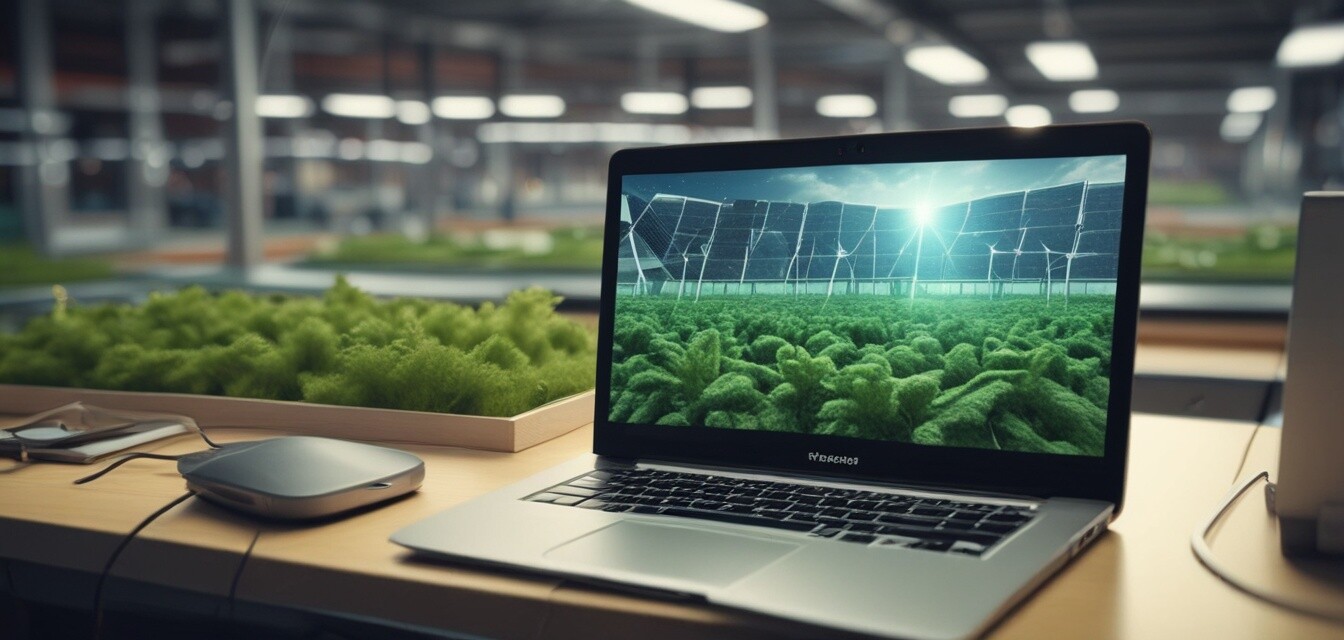
How sustainability is impacting laptop production
Key takeaways
- Manufacturers are increasingly focusing on eco-friendly materials.
- Sustainable production reduces carbon footprints.
- Consumer demand drives the shift towards greener practices.
- Innovations include energy-efficient manufacturing techniques.
- Regulatory pressures encourage sustainability in the tech industry.
The technology landscape is evolving, and sustainability has become a pivotal force in shaping laptop production. Manufacturers are now prioritizing eco-friendly practices to meet both consumer demand and regulatory requirements. This article explores how sustainability impacts the production processes of laptops, highlighting innovations and strategies that lead to greener electronics.
The shift towards sustainability
Over the last few years, there has been a significant shift in how laptop manufacturers approach production. With increasing awareness around environmental concerns, companies are adopting sustainable practices as a core aspect of their operations. This movement is not only responding to consumer preferences but is also spurred by regulations aimed at reducing carbon emissions and waste. Let's delve deeper into what this means for the industry.
Eco-friendly materials
One of the most notable changes in laptop production is the use of eco-friendly materials. Manufacturers are exploring alternatives to traditional components that often rely on plastics and metals that contribute to environmental degradation. Below are some materials gaining traction:
| Material | Description | Benefits |
|---|---|---|
| Recycled plastics | Used plastics are repurposed to create new parts. | Less landfill waste and decreased reliance on virgin materials. |
| Bamboo | A natural, renewable resource used for laptop casings. | Biodegradable and lightweight, reducing overall weight and environmental impact. |
| Recycled aluminum | Old devices are melted down and refashioned into new aluminum components. | Significantly saves energy compared to producing new aluminum. |
Innovations in production techniques
In addition to materials, laptop manufacturers are integrating innovative production techniques aimed at reducing energy consumption and waste. Here are some examples:
- Smart manufacturing technologies that optimize material use.
- Energy-efficient assembly lines powered by renewable energy sources.
- 3D printing methods that lower production waste.
- Supply chain innovations that minimize transportation emissions.
Consumer demand for sustainable products
Another driving force behind the sustainability movement in laptop production is consumer demand. More buyers are considering the environmental impact of their purchases and favoring brands that demonstrate commitment to sustainability. Manufacturers are responding with transparent marketing and eco-friendly certifications, which can significantly influence purchasing decisions. This is in alignment with trends noted in our previous articles about consumer behavior.
Pros
- Reduced environmental impact from production processes.
- Better resource management through recycling.
- Competitive advantages from eco-friendly branding.
Cons
- Potentially higher production costs that may affect pricing.
- Challenges in sourcing sustainable materials.
Regulatory pressures and industry standards
As sustainability becomes a more pressing global issue, governments are introducing regulations aimed at encouraging manufacturers to adopt greener practices. Compliance with these mandates not only helps the environment but also enhances a company's reputation, positioning it as a leader in innovative technology. Regulatory bodies are tightening their standards, leading to more sustainable practices across the board in the tech industry.
The role of certifications
Certifications play a critical role in validating the sustainability claims made by manufacturers. Some popular certifications include:
- Energy Star: Indicates that the laptop meets energy efficiency specifications.
- RoHS: Restricts the use of certain hazardous substances in electrical and electronic equipment.
- LEED: Recognizes the environmental performance of facility operations.
The future of laptop production
As we move forward, the impact of sustainability on laptop production will continue to evolve. Embracing eco-friendly practices is not just an optional strategy; it has become a vital component of business success. Manufacturers must innovate and adapt to maintain consumer trust and comply with evolving regulations. The future looks promising for sustainable laptops, as both technology and consumer awareness advance.
Tips for choosing sustainable laptops
- Look for laptops with eco-friendly certifications.
- Consider brands known for sustainable practices.
- Research the materials and components used in the laptop.
- Support companies that focus on recycling programs.
Conclusion
The impact of sustainability on laptop production is undeniable, with manufacturers working tirelessly to meet the demands of eco-conscious consumers and regulatory requirements. With ongoing innovations and a focus on eco-friendly practices, the future of laptop production is poised to change for the better. Stay updated with our buying guides and explore budget laptops that prioritize sustainability.